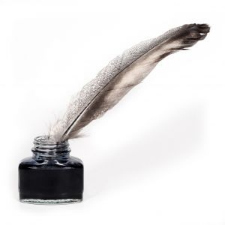Publishing Nonfiction and The Law Of Averages
I liken writing to the law of averages, the average person wants to write a book ( some say the number is as high as 90%) still the law of averages says that only 20% will write a book and of these only 5% or less will publish it.
The same things go with self-publishing, but as Al pointed out, with good marketing, you will have a better chance to sell.
So I asked a few people what would you say would sell better?
A published book in fiction or non-fiction?
Going with self-publishing, the law of averages state the bestsellers (whatever each group defines as such) are how to or non-fiction books.
I suspect that this would be the same if you were to traditionally publish.
Bearing this in mind, what would you add to the law of average in publishing non-fiction?
Can Create Space Me Money For Me?
Why Write?
You May Also Like

We Mean Self-Publishing Business
April 23, 2013
The Thing To Remember About Self-Publishing a Book
July 6, 2011
2 Comments
Adele
That's an interesting question. I don't know that it would be the same with traditional publishing houses as they have the money to promote the fictional novel and with the major publishing house status on the book cover, many readers see a fictional book as a so-called legitimate book. Still it makes you wonder, as it seems that many self-published non-fiction books might not be as well-researched as traditionally published NF. Then again perhaps self-published NF authors have a niche market such as their own business or have a knowledge about a certain industry/trade skill. Good post.
Wanda Shapiro
When it comes to self-publishing, non-fiction is in the lead for sure, so far at least. Though I believe that's going to change fairly quickly. Fiction writers like me are getting the indie bug and following in the foot steps of indie musicians and film makers. The technology is there for writers the same way it's there for musician.
I would like to thing that regardless of the publishing method, fiction has the largest potential for sales. When you look at books like the Alchemist that has sold millions of copies world wide.
I'd love to see the actual numbers, but it's fun to speculate.